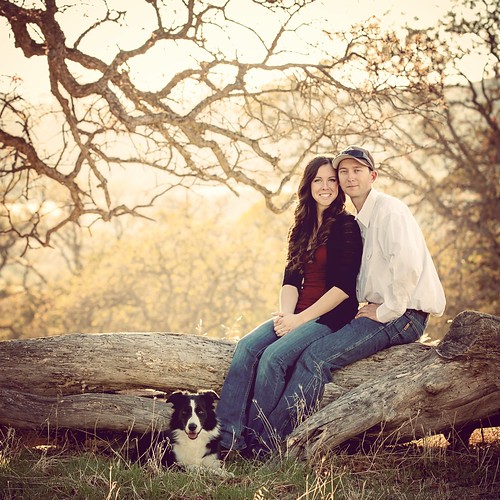
Carissa Koopmann Rivers, a fifth generation cow/calf rancher, with grazing cattle on Mount Diablo.
As part of our ongoing #womeninag series, we are highlighting a different leading woman in agriculture each month. This month, we profile Carissa Koopmann Rivers, a fifth generation cow/calf rancher from Sunol, Calif., where her family established the Koopmann Ranch in 1918.
The Koopmann family has continued to be at the forefront of conservation and partnership development including playing a key role in the establishment of the California Rangeland Conservation Coalition. Carissa discusses how there is not a “one size fits all” approach when it comes to living on the family farm or ranch. She believes that it’s not about fitting the mold, but what sets us apart that defines how we will build a future for the agriculture industry.
How do you start your day?
Currently, my life is about to change as my husband and I anticipate the birth of our first child in October. We are in the process of purchasing our first home in Northern Califiornia and I will be starting as the University of California Cooperative Extension Livestock and Natural Resources Advisor for Siskiyou County in February. My husband is a fire dozer operator for the United States Forest Service in the Shasta-Trinity forest.
So my typical mornings of enjoying a cup of coffee while peering into the sunrise through oak trees, now occur with my folks as I am spending time at our family ranch. I enjoy this time pondering the trials and tribulations of the beef cattle industry, the importance of rangeland management and the outlook of our natural resources as they pertain to agriculture and public concerns. I am always thinking about how I can help give the public a tangible agriculture experience that will connect them positively to the land.
What do you think are the biggest challenges for women in ag who are just starting their careers?
I have not felt any challenges as a female growing up with a passion for raising livestock and managing our natural resources, thanks to having a supportive family and agricultural environment. My parents instilled in me the importance of hard work and being excited about what you do, whether it is agriculture-related or not. I attribute my successes to those who have raised me, and I consider that to be the agriculture community of California. There are good people out there and when we show passion and drive, the agriculture community embraces us and will help to stock our tool boxes with tools for success.
It can be challenging as a strong, independent woman looking to be aggressive in your career field. But not fitting the mold is what woman in agriculture do and it is what sets us apart, and makes us good role models for the next generation.
There are absolutely challenges for all folks trying to enter agriculture today, especially my generation as so many see Mom and Dad, Grandpa and Grandma work so hard to just make ends meet. Many of us see the hard work as rewarding and as much more than a job. We see it as family pride and an opportunity to continue a legacy started generations back or to start a legacy as a first generation farmer or rancher. It is our responsibility to share with our communities the education and knowledge of what we are actually doing on the ground to supply a world with food.
How do you spend the free time you have?
My free time is spent with my family, my cattle, my dogs. I enjoy keeping busy and love calving season which is in full swing right now so my mornings and evenings are spent out and about in the rolling hills and oak woodlands of beautiful California checking on our mother cows and admiring how lucky I am to be able to spend my life taking care of animals and maintaining healthy ecosystems for generations to come.
What are your hopes for the next generation for women in agriculture?
I have many ambitions for the next generation of agriculturalists and they all focus on being passionate, listening to others and taking action based on gathered knowledge, because if you don’t, who will?
I hope that the next generation continues to grow in terms of numbers directly involved in production, but also in terms of the amount and quality of knowledge that gets passed between one another. The agriculture industries are very departmentalized and though very different we all face similar challenges and need to assimilate in order to reach a successful state where we can overcome challenges together. I hope that the next generation sees this and takes action towards a successful future for agriculture as a whole.
In seven words or less, what is some advice you would offer your fellow women in agriculture?
Listen, be informed and follow through.
Is there a leading woman in agriculture you would like to hear from? Send us your suggestions using #womeninag or via email at agwomenlead@usda.gov.

Carissa Koopmann Rivers and her husband, Vic, a fire dozer operator for the United States Forest Service in the Shasta-Trinity forest.
No comments:
Post a Comment
Note: Only a member of this blog may post a comment.